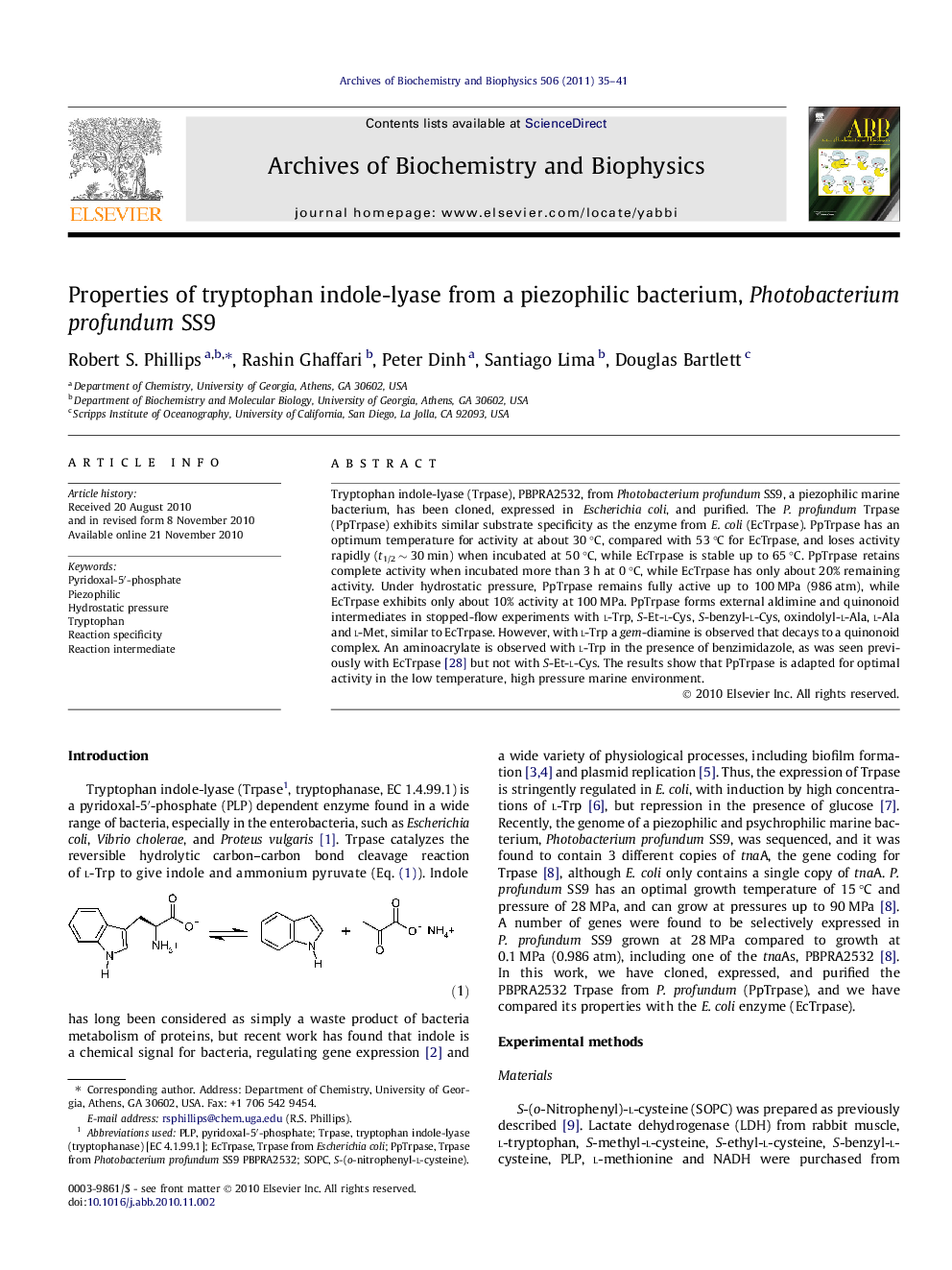| Article ID | Journal | Published Year | Pages | File Type |
|---|---|---|---|---|
| 1925938 | Archives of Biochemistry and Biophysics | 2011 | 7 Pages |
Tryptophan indole-lyase (Trpase), PBPRA2532, from Photobacterium profundum SS9, a piezophilic marine bacterium, has been cloned, expressed in Escherichia coli, and purified. The P. profundum Trpase (PpTrpase) exhibits similar substrate specificity as the enzyme from E. coli (EcTrpase). PpTrpase has an optimum temperature for activity at about 30 °C, compared with 53 °C for EcTrpase, and loses activity rapidly (t1/2 ∼ 30 min) when incubated at 50 °C, while EcTrpase is stable up to 65 °C. PpTrpase retains complete activity when incubated more than 3 h at 0 °C, while EcTrpase has only about 20% remaining activity. Under hydrostatic pressure, PpTrpase remains fully active up to 100 MPa (986 atm), while EcTrpase exhibits only about 10% activity at 100 MPa. PpTrpase forms external aldimine and quinonoid intermediates in stopped-flow experiments with l-Trp, S-Et-l-Cys, S-benzyl-l-Cys, oxindolyl-l-Ala, l-Ala and l-Met, similar to EcTrpase. However, with l-Trp a gem-diamine is observed that decays to a quinonoid complex. An aminoacrylate is observed with l-Trp in the presence of benzimidazole, as was seen previously with EcTrpase [28] but not with S-Et-l-Cys. The results show that PpTrpase is adapted for optimal activity in the low temperature, high pressure marine environment.
Graphical abstractFigure optionsDownload full-size imageDownload high-quality image (66 K)Download as PowerPoint slideResearch highlights► Photobacterium profundum SS9 Trpase (PBPRA2352) is more pressure-stable than the Escherichia. coli enzyme. ► P. profundum Trpase is more stable at 0 °C than E. coli Trpase. ► P. profundum Trpase is less stable at 50 °C than E. coli Trpase. ► The P. profundum enzyme is adapted to the high pressure (28–45 MPa) and low temperature (4–9 °C) of the marine environment.
